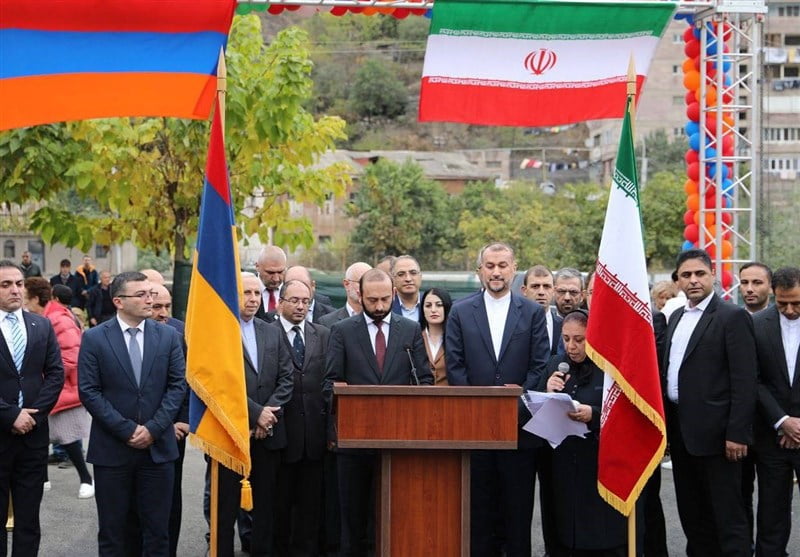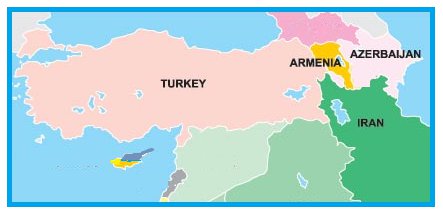
Tensions are brewing between Azerbaijan and Armenia, while global and regional actors reportedly seek to preserve stability in the South Caucasus. If the situation in the region escalates, Iran threatens to intervene to protect Armenia’s southern borders. How likely is a major war between the Islamic Republic and Azerbaijan: two neighbouring Shia Muslim nations?
By Nikola Mikovic
According to reports, on March 25, Azerbaijani forces crossed a line of contact in the district of Shusha in Nagorno-Karabakh – a mountainous region internationally recognised as part of Azerbaijan. However, it has been under Armenian control for three decades. The primary goal of their operation was to prevent “illegal arms transfers from Armenia to Nagorno-Karabakh”.
Russian peacekeepers, who were deployed to the region in 2020 due to the Moscow-brokered ceasefire deal between Baku and Yerevan, have been unable to prevent Azerbaijani actions. Quite aware that the Kremlin bogged down in Ukraine, is not in a position to continue playing the role of a regional arbiter, both Azerbaijan and Armenia seem to treat the Russian forces in Nagorno-Karabakh as a necessary evil.
Still, if Azerbaijan remains determined to restore its sovereignty over the mountainous region forcefully, there is virtually nothing the Russian troops can do to prevent an escalation of the conflict.
As a defeated party in the 44-day war, it fought against Azerbaijan over Nagorno-Karabakh in 2020. Armenia can unlikely protect ethnic Armenians in the region, and the European Union, dependent on Azerbaijani gas, is expected to turn a blind eye to Baku’s actions.

Iran is the only regional actor that seems resolute in not allowing Azerbaijan to strengthen its position in the South Caucasus significantly. That, however, does not mean that Tehran will intervene to protect the Karabakh Armenians.
For the Islamic Republic, Nagorno-Karabakh is an integral part of Azerbaijan, which means that Iran will almost certainly not intervene if Azerbaijani forces launch a major offensive aiming to capture details of the regions that are still under Armenian control.
However, Iran has openly stated that it would not accept border changes in the South Caucasus. It was clear that Tehran might intervene if the Azerbaijani military eventually decided to capture portions of southern Armenia’s Syunik province to create the so-called Zangazur corridor, linking mainland Azerbaijan, through southern Armenia, with its exclave of Nakhchivan. That is why the Islamic Revolutionary Guard Corps, through its Telegram channels, recently posted videos in which it threatens to cross the Aras river and attack the energy-rich Caucasus nation.
At this point, such an action seems like it could be more probable, given that the United States is strongly pressuring Armenia and Azerbaijan to sign a peace deal and preserve stability in the South Caucasus. Baku’s incursion into Armenian-controlled parts of Nagorno-Karabakh is likely a method of pressure on Yerevan to launch the construction of the Zangazur corridor. Something that the landlocked nation of around three million people does not rush to do, quite aware that such a move could have an impact on its sovereignty.
Indeed, if built under Azerbaijani conditions, with no passport or customs controls in Syunik, Armenia will de facto lose control over its border with Iran. Although Armenia remains Russia’s ally in the Collective Security Treaty Organization (CSTO), Yerevan can unlikely count on Moscow’s support now that the Kremlin is preoccupied with its adventure in Ukraine. Thus, Iran is the only country that seems ready to support Armenia and prevent the corridor construction that would link Azerbaijan with Nakhchivan and Turkey.
Moreover, Tehran fears Azerbaijan could eventually allow Israel to use its territory to launch attacks on the Islamic Republic. That is why relations between the two Shia nations remain rather tense.
For Iran, a border with Armenia is the only guarantee that Israeli-backed Azerbaijan will not create a direct land link with NATO-member Turkey, which could seriously impact the very existence of the Islamic Republic, where ethnic Azerbaijanis make up around 25 per cent of the population.
Therefore, Iran is expected to continue threatening Azerbaijan to prevent the South Caucasus nation from invading southern Armenia. But despite rumours, there are no indications that Baku is preparing to launch a large-scale war against the former Soviet republic over the Syunik province.
For Azerbaijan, at this stage of the conflict, Nagorno-Karabakh is a top priority in its strategy to force Yerevan to make significant concessions. As a result, the Karabakh Armenians can prove to be the greatest victims of the geopolitical game Azerbaijan, Armenia, and Iran are playing in the South Caucasus.





